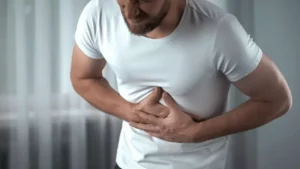
These foods can hinder the detoxification process and may lead to inflammation and other health issues. Alcohol consumption can lead to dehydration, and adequate hydration plays a significant role in supporting your body’s detoxification process. Drinking plenty of water helps flush out toxins, aids in digestion, and maintains overall bodily functions. Fish contains many healthy nutrients, prime among them omega-3 fatty acids and vitamin D. Both are crucial for keeping you feeling healthy and helping you recover from damage and inflammation. Omega-3 fatty acids specifically are among the best nutrients for fighting inflammation caused by alcohol.

Eat Soups and Liquids During the Initial Detox
Dark leafy greens can also be added to stir-fry meals and blended into fruit smoothies. Meal planning in recovery is not just about physical nourishment but also about establishing a routine that supports sobriety and well-being. Hydration is also crucial, so individuals should aim to https://ecosoberhouse.com/ drink plenty of water throughout the day and also fluids with electrolytes. A deficiency of vitamin B1 (thiamine) can be especially harmful, leading to irreversible brain damage if not addressed. In a perfect world, a good diet could prevent relapse, but this unfortunately isn’t true.
- When a person then stops drinking alcohol, their central nervous system can become hyperactive and dysregulated, leading to various withdrawal symptoms.
- Note that the exact protein content of these foods can vary depending on factors such as cooking method and preparation.
- Junk foods’ tendency to make you feel depressed or sluggish can also affect your mental state in addition to bodily organs like the heart and liver.
- If you are ready to begin a life without alcohol, The Recovery Village is here to help.
Colorful Fruits and Vegetables
When a person stops drinking, chemicals in their brain suddenly become unbalanced. Alcohol slows down communication between the brain and the nervous system, so the brain compensates for alcohol’s presence by producing extra stimulants. Without the presence of alcohol, the nervous system is suddenly overactive, which causes the symptoms of alcohol withdrawal. Grilled sirloin steak is a great choice because it provides B vitamins and minerals with just a moderate amount of fat. A side of quinoa boosts the B vitamins and minerals even further while providing fiber, and the spinach salad ups the vitamin content even further. Cucumbers are often added to water, along with mint or lemon slices, to make a quick at-home detox drink.
Importance of Hydration During Alcohol Detox

Many of the effects of drinking every day can be reversed through early intervention. Aside from water, it can be beneficial to add hydrating foods into the mix. Fruits like watermelon, strawberries, cantaloupe, peaches, and oranges are all incredibly hydrating. Vegetables like cucumber, lettuce, zucchini, celery, and tomatoes also have high water content.
Alcohol Use Disorder: Nutrition During Recovery
- It’s important to stay hydrated when recovering from alcohol, and chicken soup is a good choice for that because it contains a lot of water.
- This is especially important for someone looking to rebuild their immune system and overall health.
- A well-balanced diet is important to build up your vitamin and nutrient stores and keep you healthy during the recovery process.
- Many people find that they can’t resist the craving for something sweet.
- These beverages can contribute to blood sugar imbalances and may negatively impact your overall well-being.
Discover the reasons people may become codependent and learn effective strategies for recovery. Discover if a chemical imbalance causes anxiety and explore the latest research on anxiety treatments. Discover what Xanax does to you, the risks involved, and the journey towards recovery. Explore student opioid addiction rehab options, from medications to tailored therapies, for reclaiming lives. Dive into defining physiological dependence, its symptoms, management strategies, and the path to recovery. Discover how much alcohol can kill you, understand BAC, and learn prevention strategies for safer drinking.
That’s why it’s vital for your safety that you consult a medical professional before you stop drinking. Alcohol withdrawal symptoms like vomiting and diarrhea lead to dehydration and electrolyte imbalances. Chronic alcohol use also affects the absorption of nutrients, so someone who has been drinking heavily may become deficient in calcium, magnesium, iron, zinc and vitamins A, B, C, D and E. Eating foods rich in these vitamins and minerals can help replenish deficiencies, ease withdrawal symptoms and allow the body to heal and recover faster.
What is Mental Illness?
Studies show that sugar consumption also triggers euphoric feelings, which may help fill that gap. It’s common to begin craving sweets and other unhealthy foods when you give up alcohol. Protein is the building block your body needs to repair itself, whether that’s after a workout or after malnourishment from chronic alcohol use.
Including broccoli in your diet during alcohol detox can aid in liver detoxification and support overall health. Asparagus is a versatile vegetable that offers numerous health benefits. It is a good source of fiber, folate, iron, and vitamins A, C, E, and K. These nutrients play a crucial role in promoting detoxification and supporting overall health.

These nutrients are essential for recovery and can contribute to a satisfying meal during detox. Omega-3 fatty acids, in particular, have been shown to support brain health and reduce inflammation. best food for alcohol recovery When you are recovering from alcohol, eating well is very important for many reasons. Good nutrition helps your body heal, fixing the harm that too much alcohol has done.
Seeking professional guidance and support is also highly recommended during this process. Remember, you don’t have to face alcohol detox alone, and there are resources available to help you navigate this transformative journey. During alcohol detox, the body undergoes various physiological changes as it adjusts to the absence of alcohol. These changes can manifest as withdrawal symptoms such as anxiety, tremors, sweating, nausea, and insomnia.
